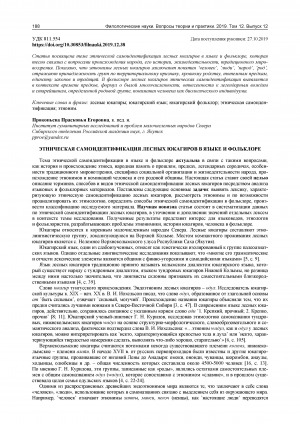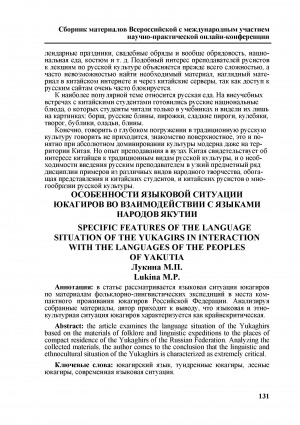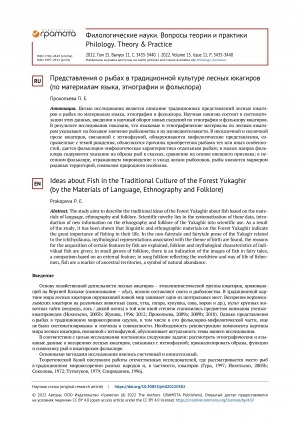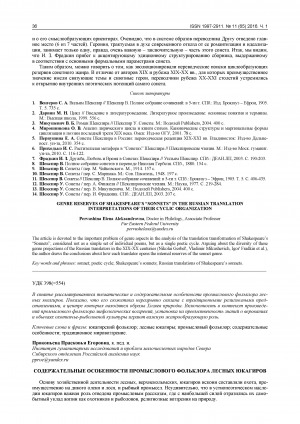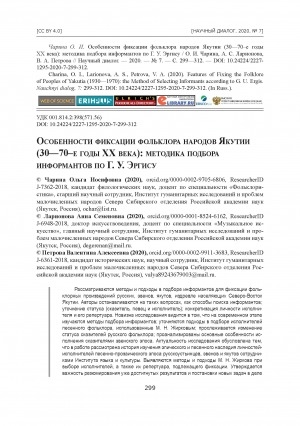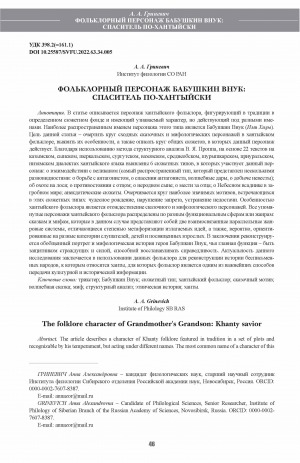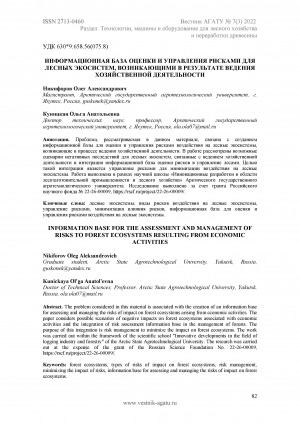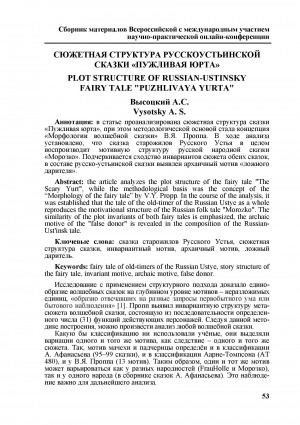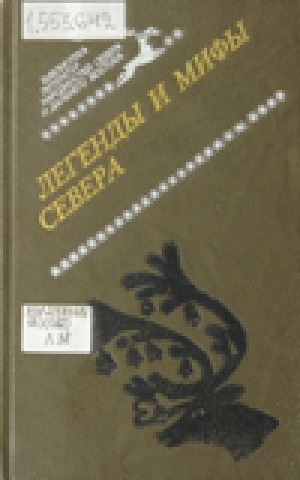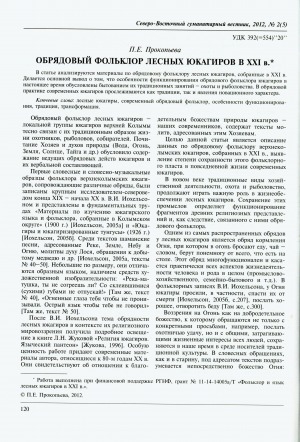Анализируются песенные вставки в сказочном фольклоре лесных юкагиров, их содержание, функции и генезис. В основном такие вставки наблюдаются в сказках о животных, о Сказочном Старике-людоеде, в бытовых сказках. Песенные эпизоды преимущественно репрезентируют монологи, реже - диалоги героев. Для них свойственно наличие лексических повторов. Песенные вставки характеризуются как магические песни, обращения к другому лицу, рассказы о себе или настоящей личной ситуации. Происхождение вставок связано с представлениями о шаманской силе, магических способностях и песенном типе рассказывания.
This paper analyzes the song inclusions in the tales of Forest Yukaghirs, the content of such pieces, their purposes, and origin. Song segments are found in animal tales, including mythological ones, fairy tales about a Fabulous Old Man-eater, and everyday fairy tales. The song inclusions mostly convey the monological speech of the characters and include lexical repetitions. The song inclusions considered are mainly the magical appeal of one hero to another, a personal story, or a real personal situation. Some of them can be characterized as personal songs. Characters endowed with supernatural powers use the song as a magical ritual. These characters include heroes with shamanic powers and the ogre giant, the Fabulous Old Man. The magical potential of the song, aimed at summoning and embodying something, can also be evoked by ordinary people, even unintentionally. Songs-appeals of some characters to others are performed in magical situations, facilitating their manifestation. The fairy tales provide indirect indications of the shamanic power of the singing characters. Alternatively, the songs addressed to other persons can be performed by ordinary characters, usually represented by animals. Songs as personal narratives or real personal situations can be found mainly in the tales about animals. The song inclusions are based on the representations of shamanic activity, magical abilities, and the song type of storytelling, as evidenced by the existence of both non-fairy and fairy tale Yukaghir prose.


